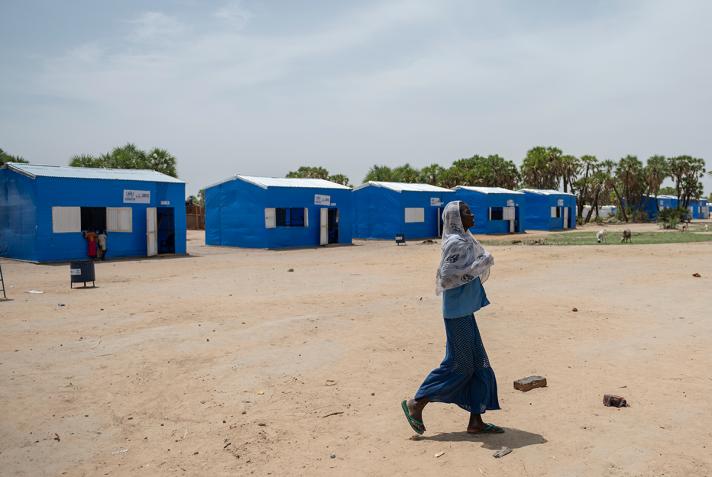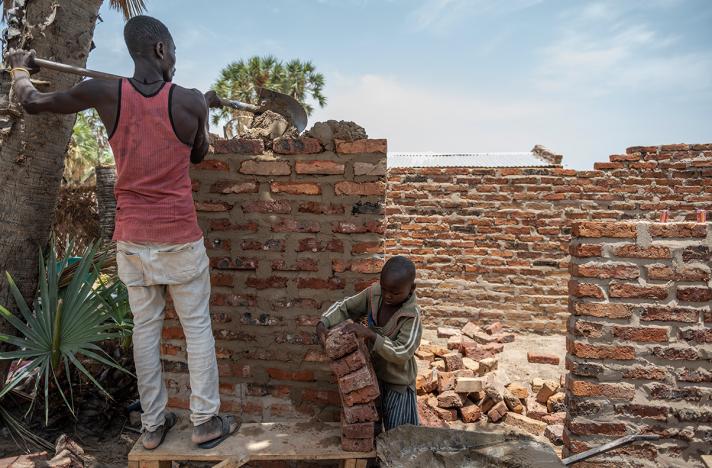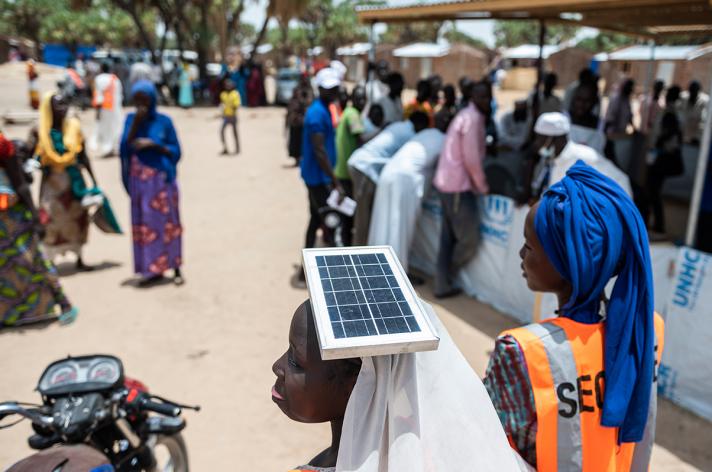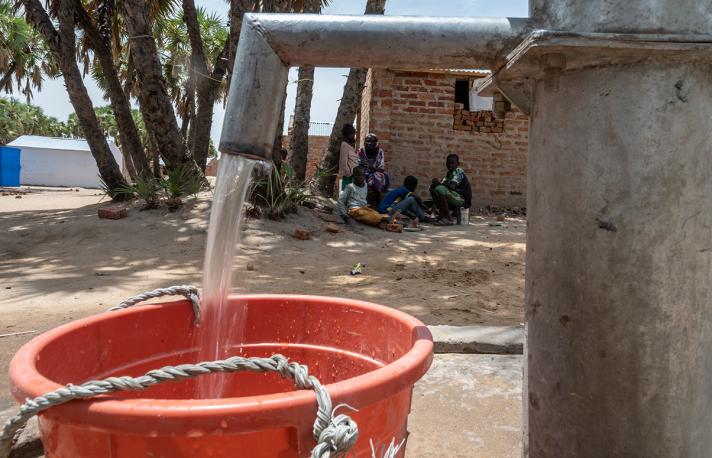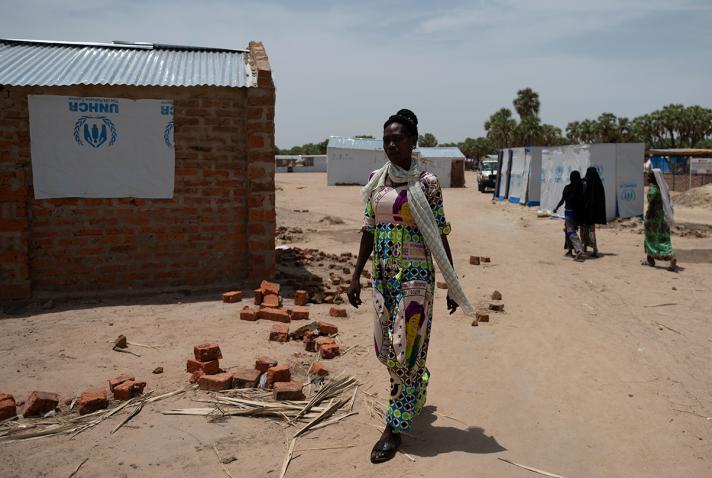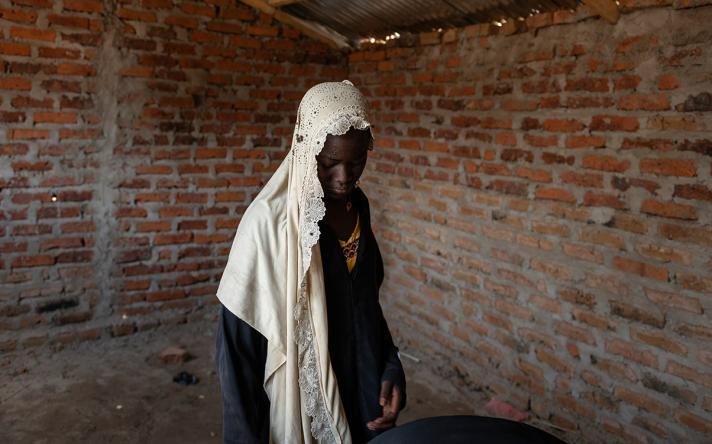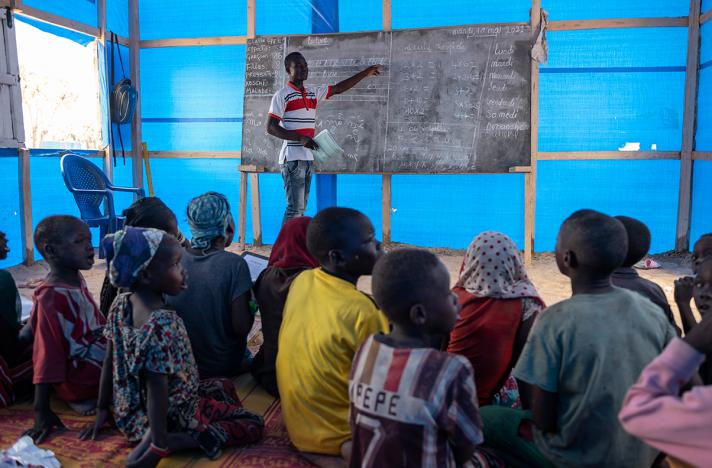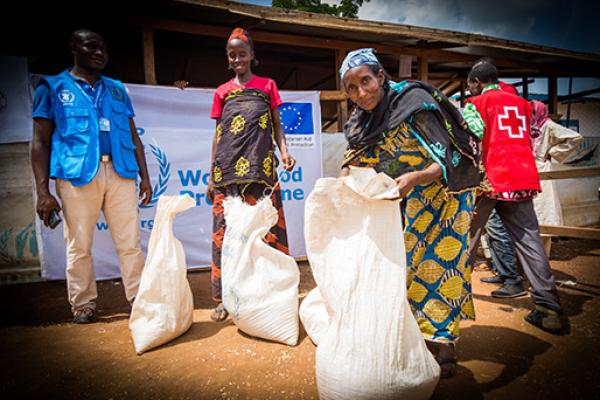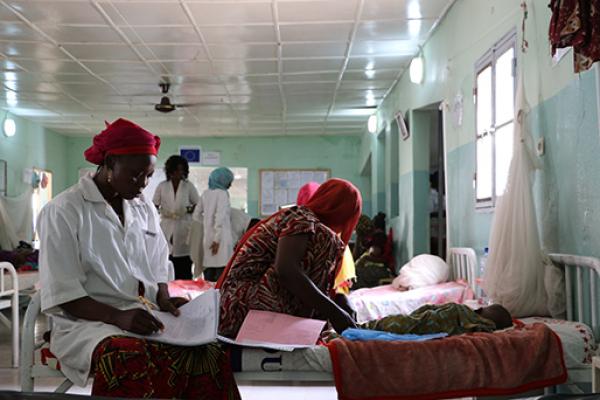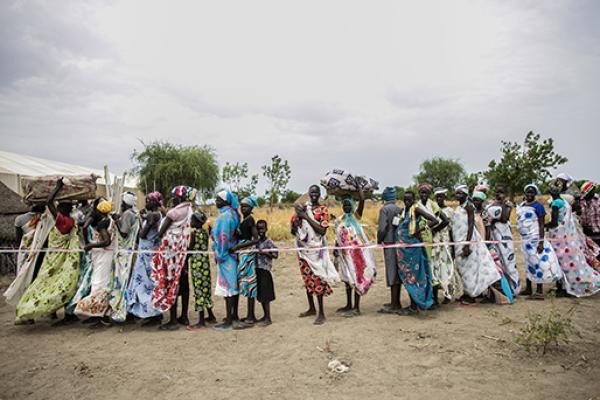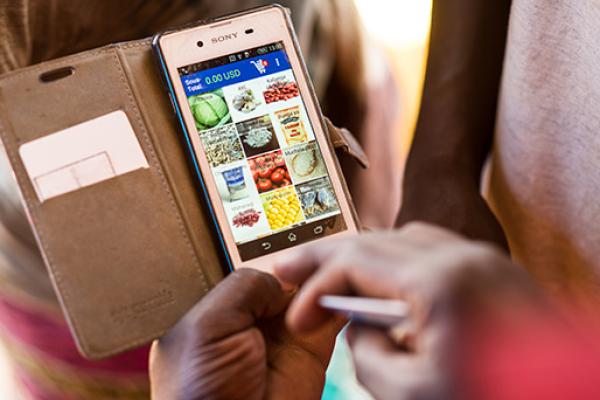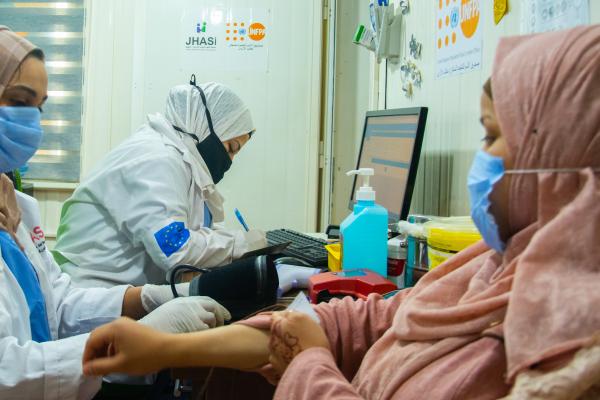In December 2021, a new outbreak of violence in the province of Logone-Birni in north-eastern Cameroon caused thousands of people to seek refuge in neighbouring Chad, crossing the Chari River to reach the outskirts of the Chadian capital N'Djamena.
Over 60,000 Cameroonians refugees in need live in Chad after fleeing their country last year.
This conflict is the result of growing inter-communal tensions around the Lake Chad Basin. People are struggling with immense challenges including endemic poverty, weak public services and chronic insecurity caused by protracted armed conflicts. These areas face increasing environmental degradation, further fuelling food insecurity and competition for scarce resources.
The Kalambari camp and its 27 sites, 30 km from the capital, houses over 10,500 Cameroonian refugees – mostly women and children. In the searing heat of this arid area, EU humanitarian partners provide cash assistance to cover the basic needs of the most vulnerable families.
EU funding also goes to preventing further deterioration of the health situation, by promoting good practices, and by increasing access to safe drinking water, sanitation facilities, and health care.
We visited the Kalambari camp last May to meet first-hand the Cameroonian refugees. These are their stories.

